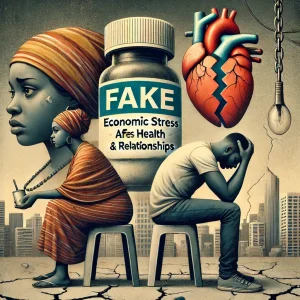
Sexually Transmitted Diseases (STDs) represent a significant public health issue in Nigeria, affecting individuals' health, societal well-being, and economic stability.
The Prevalence and Impact of STDs
Recent data highlight that STDs are a significant concern in Nigeria, especially in urban areas, with a noticeable spread to rural regions. Gonorrhea emerges as the most prevalent STD, with historical data indicating Lagos once had the world's highest rate. The prevalence of gonorrhoea has been alarmingly high, reaching up to 28.1% in specific surveys. This disease, alongside others, has been linked to significant health issues, including infertility in both men and women.
Apart from gonorrhoea, other prevalent STDs in Nigeria include syphilis, trichomoniasis, candidiasis, and bacterial vaginosis, with cervical cancer being a notably associated malignancy. The asymptomatic nature of many STDs, such as syphilis, further complicates the situation, leading to underdiagnosis and untreated cases.
The HIV/AIDS Situation
Nigeria faces a significant challenge with HIV/AIDS, holding the world's second highest burden of the disease. An estimated three million people live with HIV/AIDS, and in 2015, there were 190,950 new infections. The epidemic shows regional variations in prevalence, and access to diagnosis and care, especially for children, remains limited. This situation underscores the urgent need for more effective intervention strategies.
The Sociocultural Context
Various sociocultural factors influence the spread of STDs in Nigeria. For instance, certain beliefs and practices have contributed to the rise in STDs among young girls. The lack of comprehensive sex education and persistent myths around STDs further exacerbate the problem.
Government and Public Health Response
The Nigerian government's response to this health crisis is crucial. Adequate funding and support for health programs, particularly those addressing STDs, are essential. Initiatives by organizations like UNICEF to promote health education, routine immunization, and strengthen primary health care are steps in the right direction. However, there is still a long way to go in terms of achieving universal health coverage and effectively tackling the STD crisis in Nigeria.
The situation of STDs in Nigeria demands immediate attention and action. It's not just a medical issue but a social and economic one. Addressing this challenge requires a multi-faceted approach involving government action, community involvement, and public health initiatives. Only through combined efforts can the tide be turned in the fight against STDs in Nigeria.




